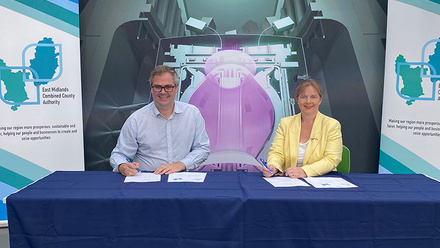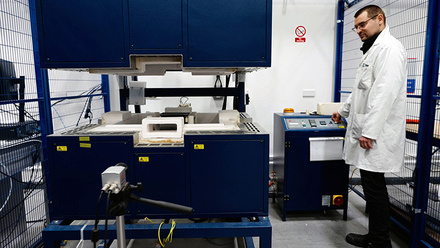Majority of UK offshore workforce to be delivering low carbon energy by 2030
A new UK Offshore Energy Workforce Transferability Review by Robert Gordon University (RGU) highlights that the offshore energy workforce mix will change significantly in the next 10 years.

The report suggests that roles in decarbonised energies are projected to increase from 20% to 65% of all jobs in the offshore energy sector, including oil and gas, offshore wind, carbon capture utilisation and storage and hydrogen.
The review also indicates that over 90% of the UK’s oil and gas workforce have medium to high skills transferability and are well positioned to work in adjacent energy sectors.
The opportunities for the UK energy supply chain and for jobs are significant, with over £170bln investment to be made in capital and operating activities in the UK offshore energy sector over the next ten years.
The review shows that around 200,000 skilled people are expected to be required in the UK offshore energy industry to ensure delivery in 2030. However, it also highlights the consequences of not delivering the ambitions set by governments and industry and the associated impact on jobs.
The review calls for the UK and the devolved Governments to work together with the offshore energy industry and further and higher education sector to ensure the managed transition of skills and experience in a way that protects and sustains key UK energy jobs.
‘This review highlights the material prize for the UK,’ says Professor Paul de Leeuw, Director of the Energy Transition Institute at Robert Gordon University and the Review’s lead author.
‘Successful delivery of the UK and the devolved Governments’ energy transition ambitions has the opportunity to secure around 200,000 jobs in 2030 for the offshore energy workforce.
‘With the overall number of jobs in the UK oil and gas industry projected to decline over time, the degree of transferability of jobs to adjacent energy sectors such as offshore wind, carbon capture and storage, hydrogen or other industrial sectors will be key to ensuring the UK retains its world class skills and capabilities.’
Key findings of the Review:
- Around 80% of the jobs in 2030 are envisaged to be in nine key job families – operations; technicians; engineering; projects; commercial, business development and marketing; procurement and supply chain management; finance; HR and HSE.
- Soft skills and other non-technical skills are generally highly transferable to adjacent energy sectors.
- Around 100,000 (50%) of the jobs in 2030 are projected to be filled by people transferring from existing oil and gas jobs to offshore renewable roles, new graduates and new recruitment from outside the existing UK offshore energy sector.
- With the increased energy system localisation and the emergence of integrated regional energy clusters it is projected that the offshore energy workforce will become increasingly regionalised.
- Around 200,000 people are likely to be required in 2030 to underpin the developing offshore wind, hydrogen, carbon capture and storage as well as the vital ongoing oil and gas activities in the UK offshore energy sector. This compares to around 160,000 people directly and indirectly employed in the UK offshore energy sector in 2021.
- The offshore energy workforce mix is expected to change with over 65% of the workforce by 2030 projected to support low carbon energy activities.







